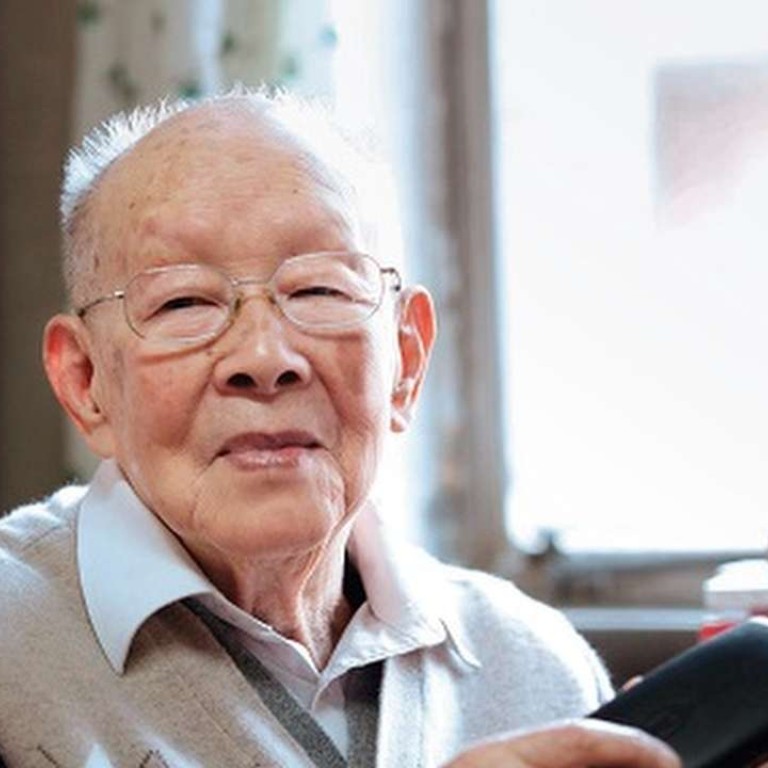
The father of pinyin, translator of encyclopedias and outspoken economist who denounced Marx
In his later years, Zhou called for democracy and the recognition of wrongdoings against Tiananmen protesters
ZHOU YOUGUANG
1906-2017
Zhou Youguang, an economist-turned-linguist known as the father of the pinyin system of romanisation for Mandarin and who later become an outspoken critic of the communist government, has died at age 111.
The phonetic system he helped create six decades ago played a part in popularising the Chinese language when literacy was low in China. The International Organisation for Standardisation adopted pinyin in 1982. The United Nations did so in 1986.
Zhou died on Saturday in Beijing, a day after his birthday. His family said his death was not due to a specific disease, People’s Daily reported.
Zhou spent his childhood in Suzhou, Jiangsu province, and studied at St John’s University in Shanghai in 1923, majoring in economics, with linguistics as supplementary course. He later transferred to Guanghua University, graduating in 1927.
Zhou married Zhang Yunhe in 1933 and the couple moved to Japan where Zhou continued his studies. Four years later, due to the outbreak of the second Sino-Japanese war, they returned to Shanghai where Zhou worked at banks before joining the Kuomintang as a senior economic affairs official.
After the 1945 Japanese defeat in the second world war, Zhou returned to work for a bank and was stationed overseas – first in New York, then London.

In 1949, when the People’s Republic of China was established, Zhou returned to Shanghai.
An economics professor at Fudan University, Zhou was told to join a meeting on linguistics reform held by the central government in Beijing in 1955. After the meeting he was named head of a new committee on Chinese language reform and was responsible for developing a system of romanisation to pronounce Chinese characters.
He said it was an arduous task to romanise 60,000 Chinese characters, and he was derided by some people who didn’t understand his work.
During the Cultural Revolution, Zhou was persecuted as an “anti-revolutionary academic leader” and sent to a labour camp in Ningxia.
Another of Zhou’s claims to fame was translating the Encyclopedia Britannica into Chinese. He said the project brought together Chinese and American linguists and was supported by then leader Deng Xiaoping in the late 1970’s.
In his later years, Zhou supported political reform and the recognition of injustices. In a 2011 interview with American National Public Radio, Zhou expressed his desire to see the Chinese government acknowledge its wrongdoing during the Tiananmen Square democracy protests of 1989.
“Ordinary people no longer believe in the Communist Party,” Zhou said in the interview. “The vast majority of Chinese intellectuals advocate democracy.”
He also told Ifeng.com in 2013 that Chinese intellectuals were aware of many mistakes, but they dare not speak out the truth.
“The surplus value theory [of German philosopher and economist Karl Marx] is wrong and many people know it. It’s common sense abroad that this theory is wrong,” he was quoted as saying.
His wife died in 2002 aged 93 and their son Zhou Xiaoping died in 2015. A daughter died as a child.

